Have you ever wondered how a tiny yellow flake could revolutionize your culinary world and boost your health at the same time? Enter nutrient yeast, a versatile and nutritious ingredient that offers a myriad of benefits to elevate your meals and enhance your well-being. Join us on this tasty journey to unlock the secrets of nutrient yeast, exploring its nutrients, health benefits, and uses in a variety of mouthwatering dishes.
In this blog post, we’ll delve into the power of nutrient yeast, its nutrient profile, and the numerous health benefits it brings to the table. From boosting energy and metabolism to supporting a healthy pregnancy, nutrient yeast is a superfood worthy of your attention. So let’s embark on this flavorful adventure and learn how to incorporate nutrient yeast into your diet for a delicious and nutritious experience!
Key Takeaways
Nutrient yeast is a nutrient-packed powerhouse with essential B vitamins, plant-based protein and an umami taste.
It provides numerous health benefits such as increased energy, metabolism support and immune system strengthening.
Nutritional yeast can be used in many vegan dishes to add flavor while reaping its medically reviewed benefits.
The Power of Nutrient Yeast
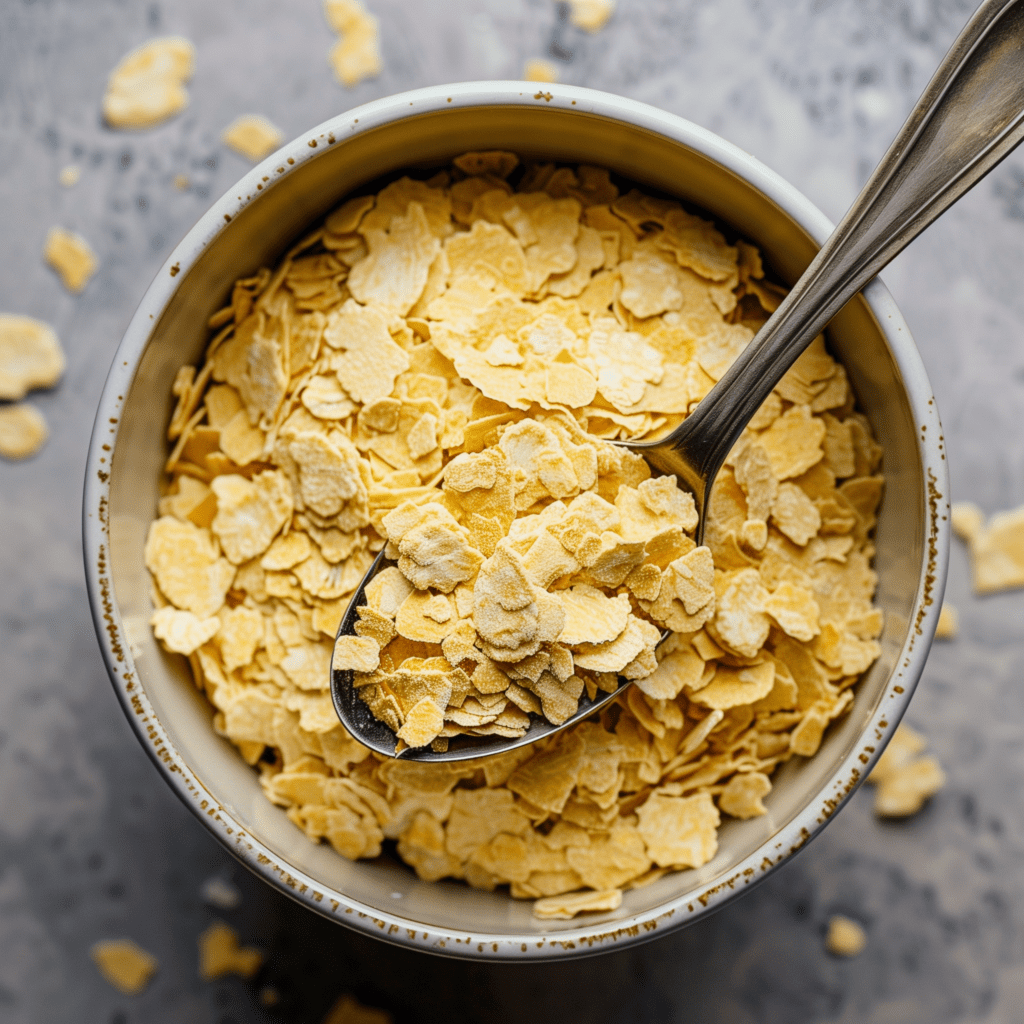
Nutrient yeast, a close relative of baker’s yeast, is a fantastic ingredient that packs a powerful punch in terms of both flavor and nutrition. Discovered in the 19th century by German scientist Justus von Liebig, he found that the yeasty by-product of beer brewing, known as brewer’s yeast, could be harvested and compressed into a flavor concentrate, or yeast extract, that resembled meat but was entirely suitable for vegetarian and vegan diets.
Offering numerous benefits of nutritional yeast, this tiny powerhouse provides:
Abundant protein
Vitamins
Minerals
A delightful nutty flavor
It can be used in a wide variety of dishes.
Paragraph 2: Not only can nutrient yeast strengthen nails and hair, reduce acne, and improve other common skin issues, but it’s also an excellent source of B vitamins, which are crucial for energy metabolism, cell health, and overall well-being. Preserving nutrient yeast in a cool, dark environment with a tightly sealed container helps maintain its exceptional vitamin content.
What is Nutrient Yeast?
Paragraph 1: Nutritional yeast is a deactivated form of Saccharomyces cerevisiae yeast, which is heat-dried to preserve its nutritional content and make it safe for consumption. This process removes any live cultures and leavening properties, leaving behind a nutrient-rich and flavorful ingredient. Nutritional yeast flakes are a popular form of this product, often used in vegan cooking as an alternative to animal products, providing a wealth of plant-based protein and essential B vitamins.
Paragraph 2: A fantastic feature of nutritional yeast is that it’s completely gluten-free and vegan, making it a welcome addition to a wide variety of diets. While it shares some similarities with baker’s yeast, nutritional yeast is deactivated and offers a unique flavor that makes it a versatile and valuable ingredient in the kitchen.
The Taste Factor
Nutrient yeast’s delightful, savory flavor adds a unique umami taste to a variety of dishes, thanks to the specific species of yeast used in its production. Its nutty, savory, and “cheesy” taste makes it a popular addition to recipes, especially those catering to vegan and dairy-free diets. Large flake nutritional yeast is a sought-after form of this product, which can be found at health food stores and most grocery stores.
Unfortified nutritional yeast offers an exciting nutrient profile without added vitamins and minerals, while fortified versions provide a more comprehensive nutrient profile with animal products. Nutritional yeast may, however, be unsuitable for those with a yeast allergy or sensitivity, and they may need to avoid nutritional yeast. Nonetheless, for those who can enjoy it, the taste factor of nutrient yeast is a game-changer in the culinary world.
Nutrient Profile: A Closer Look
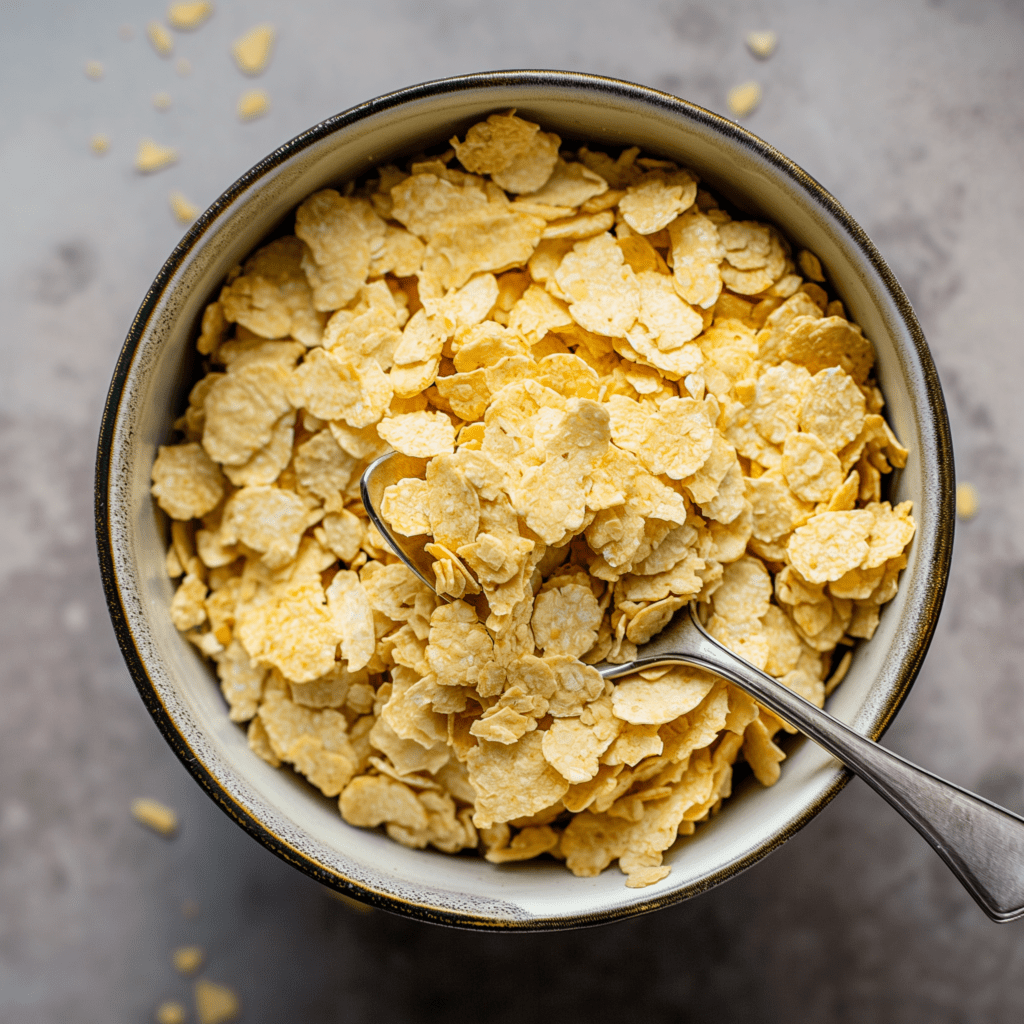
Packed with essential nutrients, nutrient yeast is a valuable addition to any diet. Just a mere 2 teaspoons (5 grams) of fortified nutritional yeast provide an abundance of plant-based protein and B vitamins, making it a fantastic alternative to dietary supplements. Nutritional yeast is an excellent source of many vitamins, minerals, and other nutrients, boasting trace amounts of several vitamins and minerals, including:
Calcium
Iron
Potassium
Selenium
B-complex vitamins
The following discussion will delve into the nutrient yeast’s profile, emphasizing its abundance of B vitamins, plant-based protein, and the distinction between fortified and unfortified variants. With its impressive nutritional values, it’s no wonder that nutrient yeast has become a staple in many plant-based diets and a favorite among health-conscious individuals.
B Vitamins Galore
Nutrient yeast is rich in B vitamins, which are crucial for energy metabolism, cell health, and overall well-being. These water-soluble vitamins contribute to glowing skin, lustrous hair, sharp eyes, and a strong liver, as well as helping the body make vibrant red blood cells and efficiently convert food into energy.
Vitamin B12 is particularly essential for those following a plant-based diet, as it keeps blood and nerve cells healthy, helps make DNA, and prevents megaloblastic anemia, a blood condition that can be avoided with the right nutrients. Nutrient yeast is an incredible source of vitamin B12, providing a staggering 313% of the daily value in just 2 teaspoons.
Plant-Based Protein Powerhouse
Paragraph 1: Nutrient yeast is an excellent source of plant-based protein, providing 5 grams per 2 tablespoons. It is a complete protein, containing all nine essential amino acids, making it a great alternative to other sources like plants and meat. The protein in nutrient yeast is easily absorbed and used by the body, making it a fantastic choice for a healthy lifestyle.
Paragraph 2: Nutrient yeast provides high-quality protein and has a low content of fat, sodium, and sugars. It’s an excellent choice for those aiming to uphold or enhance their health. It’s no wonder that nutrient yeast has become a favorite among those following plant-based, vegetarian, and vegan diets.
Fortified vs. Unfortified Nutrient Yeast
Fortified nutrient yeast contains added vitamins and minerals, while unfortified versions offer a more natural nutrient profile. The fortification process involves adding synthetic vitamins during the manufacturing process to enhance the nutrient content, such as B vitamins, including thiamine (B1), riboflavin (B2), niacin (B3), and B6 and B12. Fortified nutritional yeast provides an impressive amount of these vitamins compared to unfortified yeast.
Choosing fortified nutritional yeast over unfortified versions offers several advantages, as it contains added vitamins like B12, niacin, and riboflavin, which are essential for good health. Fortified nutritional yeast is also a great source of B12, making it especially beneficial for those following a plant-based diet.
Health Benefits of Nutrient Yeast
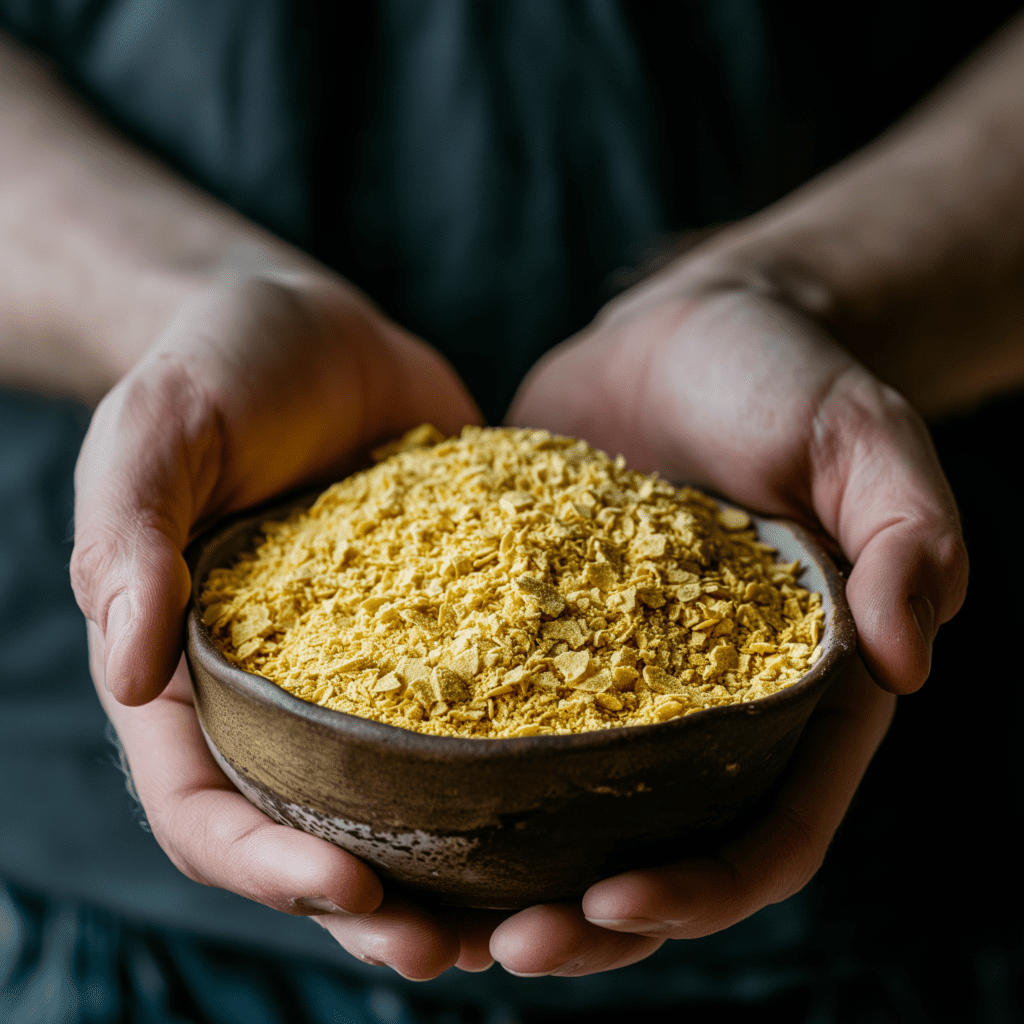
Paragraph 1: Nutrient yeast offers numerous health benefits, from increased energy and metabolism to immune system support and a healthy pregnancy. Its high concentration of B vitamins and protein, coupled with its delicious taste, makes it a valuable addition to any diet. The ensuing discussion explores the health benefits of nutrient yeast, emphasizing its energy-boosting capabilities, immune system support, and promotion of healthy pregnancy through folic acid.
Paragraph 2: Whether you’re looking to improve your overall health or simply add a delicious and nutritious ingredient to your meals, nutrient yeast is a fantastic option. Its potential health benefits, coupled with its versatility in the kitchen, make it a must-have in any pantry.
Boosting Energy and Metabolism
Nutrient yeast is high in B12, which plays a crucial role in boosting energy levels and supporting a healthy metabolism. This essential vitamin is especially important for those following a plant-based diet, as it helps keep blood and nerve cells healthy, preventing anemia, muscle weakness, nerve damage, and mood disturbances.
Supplementing with vitamin B12 may help prevent a persistent lack of energy and fatigue, as well as promote overall well-being. Just a quarter cup of nutritional yeast provides more than seven times the recommended daily amount of B12, making it an excellent source for those looking to boost their energy and metabolism.
Immune System Support
Nutrient yeast may positively contribute to immune health by reducing inflammation and guarding against gastrointestinal infections. The fiber beta-glucan and the strain of yeast called S. cerevisiae found in nutrient yeast have been shown to support the immune system and effectively reduce the production of pro-inflammatory markers.
In addition to its anti-inflammatory properties, nutritional yeast is a great source of fiber, which can help promote regular bowel movements and, indirectly, support gut health and prevent gastrointestinal issues. Incorporating nutrient yeast into your diet can contribute to a stronger, more resilient immune system.
Pregnancy and Folic Acid
Fortified nutrient yeast is a good source of folic acid, which is essential for a healthy pregnancy and preventing congenital defects. Folic acid is added to fortified nutritional yeast products and can help promote a healthy pregnancy and prevent congenital defects such as neural tube defects (NTDs) like spina bifida and anencephaly.
The suggested daily intake of folic acid for pregnant women is 400-800 mcg, which is beneficial for both mother and baby. By incorporating fortified nutrient yeast into your diet, you can easily meet the recommended daily amount of folic acid, ensuring a healthy pregnancy and safeguarding the well-being of your growing baby.
How to Use Nutrient Yeast in Your Diet
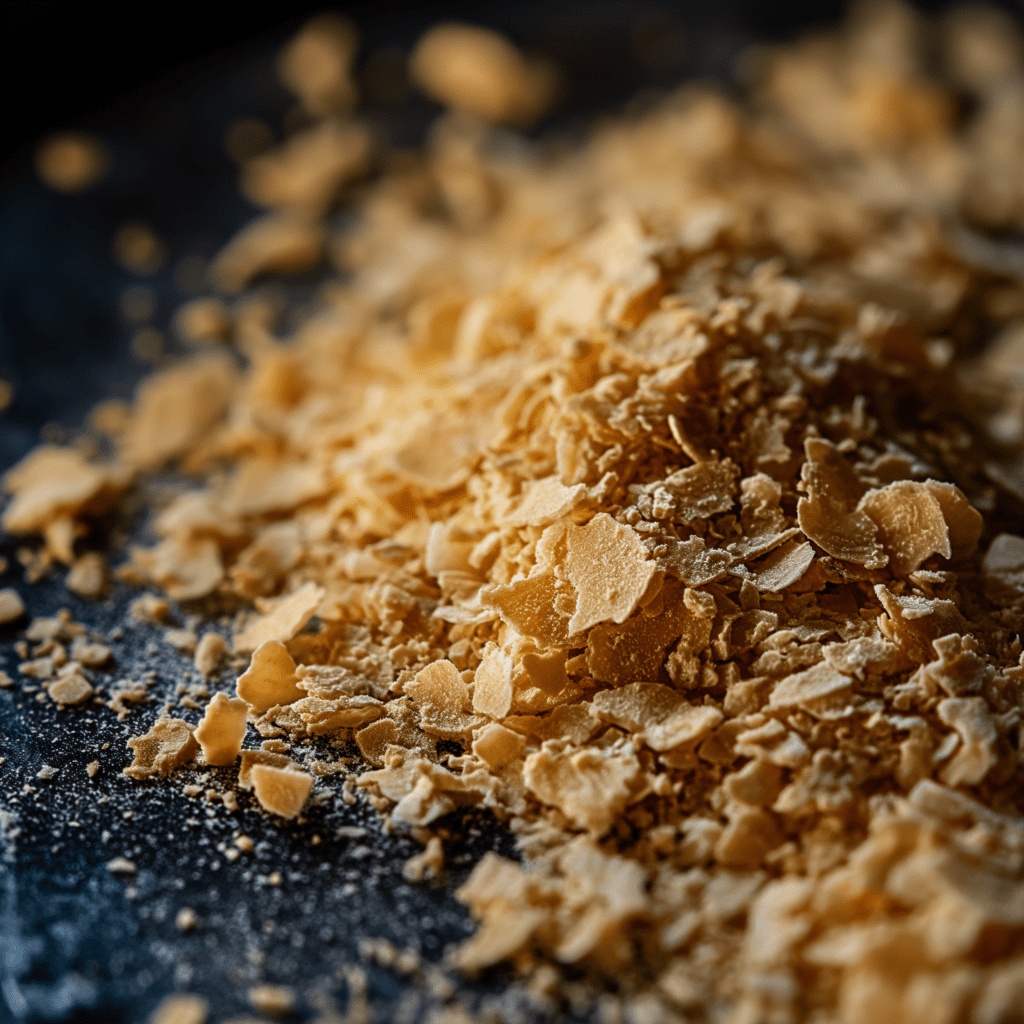
Nutrient yeast can be used in various ways, including:
Seasoning: Sprinkle it on popcorn, roasted vegetables, or pasta dishes for a savory flavor boost.
Dairy-free cheese alternative: Use it to make vegan cheese sauces, sprinkle it on top of pizzas, or mix it into creamy dips.
Recipe ideas: Try making vegan mac and cheese, cheesy vegan nachos, or a dairy-free cheesy broccoli casserole.
These are just a few examples of how you can incorporate nutrient yeast into your cooking to add flavor and create delicious plant-based dishes.
Whether you’re looking to add a flavorful twist to your favorite dishes or incorporate more plant-based options into your diet, nutrient yeast is an ingredient worth exploring. Its unique taste, coupled with its impressive nutrient profile, makes it a must-try for anyone looking to enhance their culinary repertoire.
Savory Seasoning
Nutrient yeast can be used as a savory seasoning to enhance the flavor of various dishes, adding a delicious umami taste that will tantalize your taste buds. Its rich, nutty, and savory flavor is a great substitute for cheese in vegan recipes, and it’s MSG-free, providing essential B vitamins.
Adding nutrient yeast as a seasoning does not alter the nutritional profile of the dish, but it does contribute a delightful depth of flavor. Sprinkle it on pasta, vegetables, or salads to elevate your meals and enjoy the benefits of this tasty, nutrient-packed ingredient.
Dairy-Free Cheese Alternative
Nutrient yeast is a popular dairy-free cheese alternative, adding a cheesy flavor to vegan and lactose-free recipes. Its savory taste and nutritional benefits make it a fantastic choice for those looking to reduce or eliminate dairy from their diets without sacrificing flavor, even when compared to options like parmesan cheese.
Paragraph 2:
Nutritional yeast can bring a creamy and cheesy flavor to a variety of dishes, including soups, dips, pastas, and risottos.
It is a versatile and delicious option for those following vegan and lactose-free diets.
Nutritional yeast is low in fat, sodium, and sugar, making it a healthier choice compared to traditional dairy cheese.
Recipe Ideas
Nutrient yeast can be incorporated into a variety of recipes, such as dairy-free Bolognese and vegan mac and cheese. Its delightful nutty, cheesy flavor adds a unique twist to traditional dishes, making it an excellent addition to your culinary arsenal.
Other delicious recipes using nutrient yeast as a seasoning include:
Sweet Potato Mac and Cheese
Crispy Potato Vegan Cheese Sticks
Cauliflower Mac and Cheese
Vegan Fried Chicken
Cheesy Kale Chips
Creamy Vegan Spinach Artichoke Dip
Tofu Scramble
Easy Vegan Scalloped Potatoes
With so many mouthwatering options, incorporating a type of yeast like nutrient yeast into your diet has never been more enjoyable or easier, especially when the benefits are backed by medically reviewed sources.
Precautions and Considerations
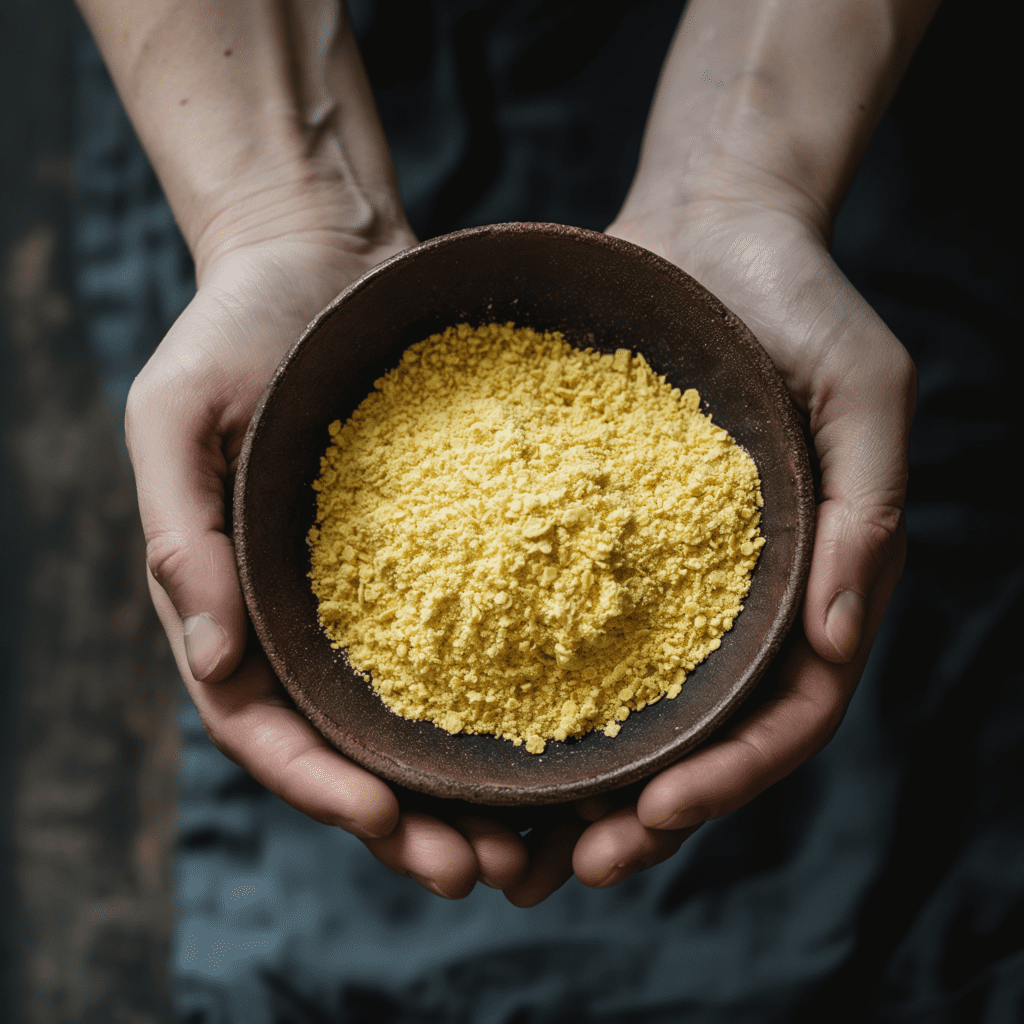
While nutrient yeast is generally safe for most people, some individuals may need to avoid it due to specific medical conditions or allergies. For example, people with yeast sensitivities or allergies, as well as those who frequently experience yeast infections, should exercise caution when consuming nutrient yeast.
Despite these precautions, nutrient yeast remains a popular and nutritious ingredient for many individuals, offering numerous health benefits and culinary possibilities. By being mindful of your personal health needs and incorporating nutrient yeast into your diet as appropriate, you can enjoy the delicious taste and impressive nutrient profile this versatile ingredient has to offer.
Summary
In conclusion, nutrient yeast is a versatile and nutritious ingredient that offers numerous health benefits, from boosting energy and metabolism to supporting immune health and promoting a healthy pregnancy. Its unique and savory flavor makes it a popular addition to various dishes, and its impressive nutrient profile, including B vitamins and plant-based protein, make it a valuable component of any diet.
Whether you’re looking to enhance your culinary creations or improve your overall well-being, nutrient yeast is a must-try ingredient. So why not give it a whirl and discover the delicious and nutritious world of nutrient yeast for yourself? Your taste buds and your body will thank you.
Frequently Asked Questions
Is nutritional yeast good for you?
Based on the provided text, it appears to be a single paragraph. However, I can split it into two paragraphs for better readability: Paragraph 1: Nutritional yeast is an excellent source of vitamins, minerals, antioxidants, and complete proteins that may help prevent muscle loss and lower cholesterol. Paragraph 2: It is a great addition to any diet for its numerous health benefits. Please let me know if you have any further instructions or if there is anything else I can assist you with.
Is it OK to eat nutritional yeast every day?
It’s safe to consume nutritional yeast in moderation, usually several tablespoons (10-30 grams) daily. Eating more than this is unlikely to exceed the tolerable upper intake levels for its vitamins and minerals.
What is nutritional yeast used for?
Nutritional yeast is a great way to add protein, vitamins, minerals, and savory flavor to meals. It’s commonly used as a vegan cheese sauce flavoring and as a topping for soups and salads, and is also a popular addition to dishes like tofu, potatoes, and popcorn.
What’s the difference between yeast and nutritional yeast?
Yeast and nutritional yeast are different; active dry yeast is used for breads to make them rise, while nutritional yeast is deactivated and is popular among vegans as it has a nutty flavour and can thicken sauces like parmesan cheese.
What is the primary difference between fortified and unfortified nutritional yeast?
Fortified nutritional yeast provides a nutrient boost with added vitamins and minerals, while unfortified versions have a more natural profile.

Leave a Reply